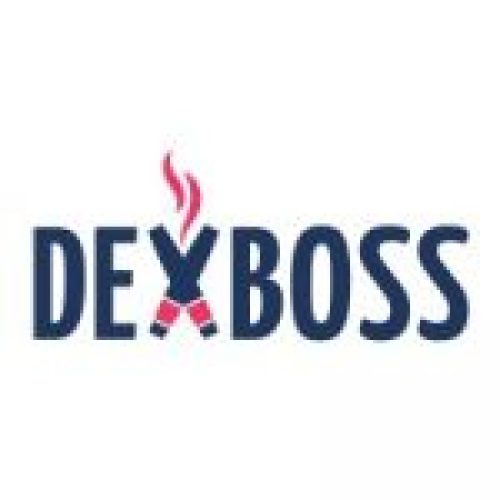Blockchain has emerged as one of the most in-demand technology skills today. However, effectively developing blockchain applications requires a diverse mix of competencies. Here we outline 7 must-have skills for aspiring blockchain engineers to succeed in building decentralized platforms and applications.
1. Understanding of Core Blockchain Concepts
A solid grasp of foundational blockchain concepts is essential before diving into development:
- How decentralized consensus algorithms like proof-of-work and proof-of-stake function
- Key characteristics like transparency, provenance, immutability and finality
- The transaction lifecycle – validation, prevention of double spends, propagation across nodes, and confirmation
- Mining and incentives for validating transactions
- Smart contracts execution model and transaction fees payment
- Common blockchain architectures like public/private networks and permissioned/permissionless access
- Tradeoffs between blockchain types – performance vs decentralization vs confidentiality
- Limitations like throughput, latency, storage, smart contracts runtime constraints
- Security factors like keys management, wallets, fraud and loss risk protections
Understanding core concepts allows assessing the technology’s applicability and limitations for different problem domains. It provides the foundation for specialized skills in niches like cryptography, protocol design and application development.
2. Proficiency in Major Blockchain Platforms
Hands-on expertise using major blockchain platforms is essential for development:
Bitcoin – The pioneer in cryptocurrencies and decentralized consensus, Bitcoin Core offers battle-tested security. UTXO-based architecture provides unique advantages for certain use cases.
Ethereum – With Turing-complete smart contracts, Ethereum enables complex dApps. Trillion dollar DeFi ecosystem with innovations across NFTs, DAOs, wrapped assets. Upcoming major upgrades like proof-of-stake consensus.
Hyperledger – Enterprise permissioned blockchain framework under the Linux Foundation. Modular architecture allows components customization for performance and security. Popular for private network consortiums.
Corda – Specialized for finance applications, Corda focuses on privacy and interoperability between regulated entities. Aims to deliver blockchain advantages in a compliant manner.
Polkadot – Sharding-based multi-chain network allowing private chains to connect to public relay chain. Enables asset interoperability and cross-chain smart contracts.
These industry-leading platforms have complementary strengths and are suited for different applications. Hands-on development experience builds intuition for architecting solutions.
3. Mastery of Programming Languages Used for Blockchain
Solidity, Go, Rust, JavaScript/TypeScript, and C++ are among the most popular languages used for blockchain engineering. Each have pros and cons:
Solidity – Primary language for writing Ethereum smart contracts. Statically typed, similar to JavaScript. Designed for EVM compatibility. Rich ecosystem of tools and libraries.
Go – Used to build Ethereum clients and other blockchain network infrastructure components. Excellent performance, concurrency support and portability.
Rust – Emerging for high-performance blockchain clients and tools thanks to memory safety, thread safety and tiny runtime. Used by Solana, Polkadot.
C++ – Bitcoin Core and other legacy clients are written in C++ for raw performance. Verbose language with steeper learning curve.
JavaScript/TypeScript – Often used to create frontends, clients and integration adapters for consuming blockchain network APIs and data. Lightweight and ubiquitous language familiar to web developers.
Based on specialization area, blockchain engineers must gain expertise in languages suited for tasks like core protocol development, dApps programming or client integrations.
4. Understanding Cryptography Primitives
Foundational cryptography concepts like hashes, digital signatures, and public key encryption provide the roots of security for blockchain platforms:
- Hashing algorithms – Used extensively for generating addresses, transaction identifiers, mining and linking blocks immutably. Know options like SHA-256, RIPEMD, Keccak and use cases.
- Asymmetric encryption – Public/private key pairs used for wallet generation, transaction signing to prove ownership and authorization. Know RSA, ECC and discrete log systems.
- Digital signatures – Mathematical schemes to prove authenticity and integrity of transactions. Used to verify identity of senders. Understand ECDSA, Schnorr signatures.
- Zero knowledge proofs – Specialized range proofs and ZK-SNARKs that enable privacy and scalability. Used in Zcash and Ethereum layer 2 scaling.
These primitives provide the secure foundation enabling blockchain capabilities. Expertise allows proper implementation in application code. Cryptography mastery is a clear differentiator for senior engineers.
5. Smart Contract Development Skills
For developers interested in building decentralized applications, expertise in smart contract programming languages like Solidity is indispensable:
- Coding conventions – Follow established style guides, directory structure, coding patterns, and security practices recommended for Solidity and Vyper.
- Tooling – Leverage IDEs (Remix, Visual Studio Code), frameworks (Truffle, Embark), and libraries (OpenZeppelin) to accelerate dApps development.
- Testing & auditing – Write comprehensive unit and integration tests. Conduct rigorous audits before deploying contracts handling real value.
- Gas optimization – Understand how design choices affect gas costs for deployment and execution. Avoid patterns like over-handling exceptions that waste gas.
- Security best practices – Adhere to checks like using recent compiler versions, avoiding vulnerable practices like tx.origin authentication, following token standards etc.
- Upgradability – Understand techniques for upgrading deployed contracts including proxy patterns, mutable pattern, and Eternal Storage.
As blockchain usage grows, demand for smart contract developers with expertise in languages like Solidity is poised to skyrocket.
6. Understanding Blockchain Testing Methodologies
Thorough testing is crucial given the immutable nature of blockchain state. Testing expertise spans:
- Unit testing – Isolate and test individual components like smart contracts using frameworks like Mocha.
- Integration testing – End-to-end testing of complex application scenarios spanning multiple contracts, data states, cryptographic proofs etc.
- Fuzzing – Automated testing by generating random invalid or unexpected inputs to uncover edge cases and failures.
- Stress testing** – Validate performance metrics like latency, throughput and error rates under heavy simulated workloads and network conditions.
- Benchmarking – Profiling bottlenecks and optimization opportunities from factors like block sizes, mining algorithms, signature schemes etc.
- Auditability – Leverage transparency of blockchain data to audit and verify application behavior, provenance of records, correctness of algorithms etc.
Adopting robust testing practices is key to ensure stability and reliability for mission-critical decentralized applications.
7. Operations, Administration and Monitoring
Running blockchain systems in production requires operations skills:
- Monitoring node health, network peers connectivity, systems capacity, transaction rates and other metrics
- Managing keys and accounts, security practices, access models, and permissions
- Performing software and patch upgrades, configurations changes, and blockchain forking
- Building indexers and analytics pipelines to parse and store blockchain activity data
- Disaster recovery protections using backups of ledger state, wallet keys, configuration files etc.
- Automation for deployments, workflows, backup-restores to ensure consistency across infrastructure
- Performance tuning based on bottlenecks observed across the network, nodes, applications etc.
- Diagnosing issues across stack – frontends, APIs, network layer, smart contracts, blockchain client etc.
A combination of traditional systems administration and blockchain-specific monitoring and management capabilities is needed.
By cultivating expertise across these 7 domains, blockchain engineers can deliver robust decentralized solutions and become valued specialists.
Conclusion
Blockchain combines multiple complex disciplines – distributed systems, cryptography, game theory incentives, applications security, low-level performance engineering etc. Bridging this breadth of domains poses challenges but also enables fulfilling and challenging careers.
Beyond foundations like understanding core concepts and writing smart contracts, one must specialize – be it cryptography research, protocol development, testing and auditing, DevOps engineering or front end programming. Blockchain’s horizontal nature means both technical depth and ability to collaborate across specializations is crucial.
With diligence and passion, blockchain engineers can enable decentralization across finance, identity, supply chains, governance and more – delivering tremendous economic potential and social impact.



